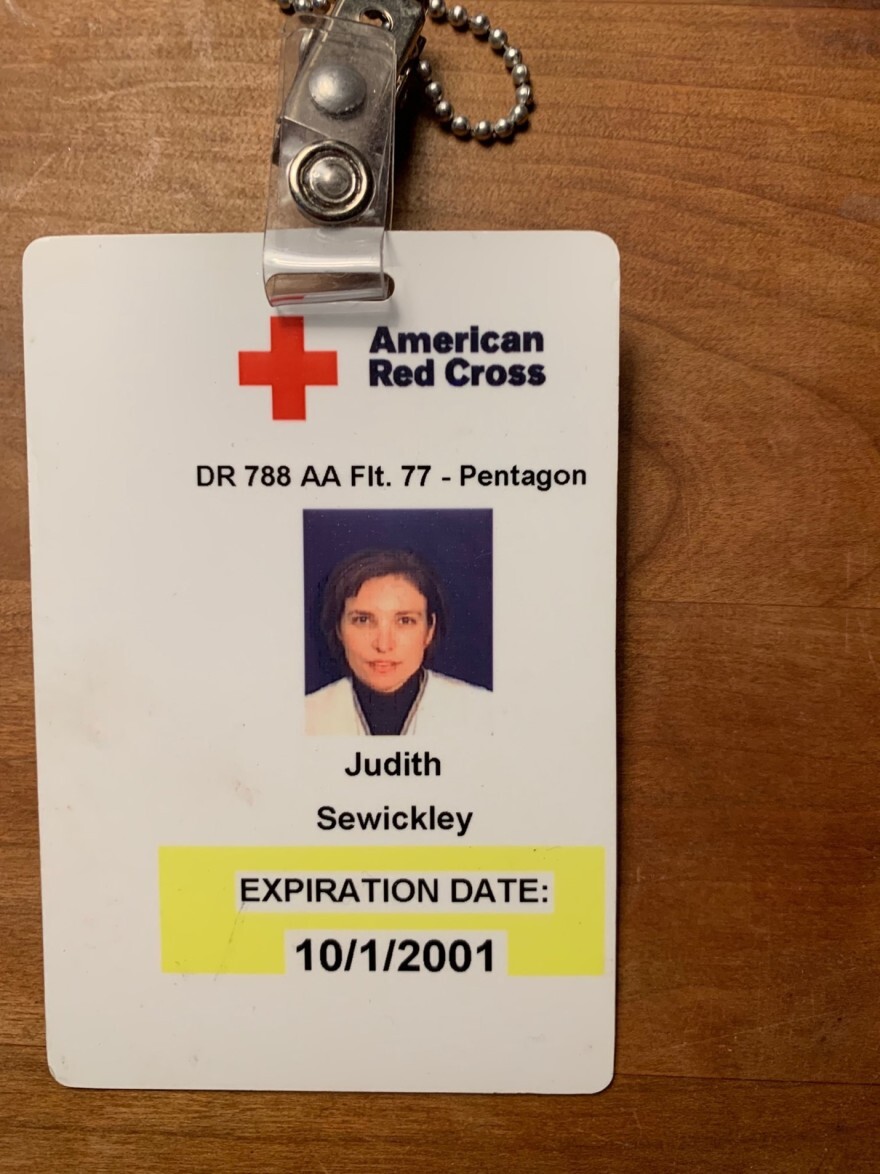‘I Can Still See Their Faces’: Mental Health First Responder Helped Soldiers At The Pentagon After 9/11

Judith Markey, then Sewickley, worked as a psychologist assigned to triage the mental health needs of Pentagon first responders after 9/11. She specifically worked with young soldiers whose job it was to recover the bodies of those who had died in the attack. (Courtesy)
My name is Judith Markey. I’m a clinical psychologist from Peacham, Vermont. Every year in early September, I start to feel very cranky, sad. I feel like something’s tugging at me, and I’m not exactly sure what’s happening. And then I remember — or my husband reminds me — that it’s almost 9/11.
On 9/11, I was at work in the morning, and my office was in Falls Church, which is really very close to the Pentagon. I had my Red Cross vest in the backseat of my car, and I drove over. Of course, every fire department from all around the area — and then the military fire departments also — like, everybody showed up in that first hour or two, and so it was complete mayhem.
The next day, I went with an emergency response vehicle. The mental health person is usually always connected to one of the emergency response vehicles. I was posted with this platoon of soldiers who did their search and recovery of the bodies.
They worked in teams. Each of the teams that went in to do the recovery of the bodies consisted of an FBI person, a FEMA person and a small group of these soldiers, who are from The Old Guard. They’re mostly ceremonial, they guard the Tomb of the Unknown Soldier, they do the military honor services at funerals at Arlington Cemetery, and they escort the president during ceremonial events. And so these kids were really, really young, and just really out of boot camp, and really had never been to war or seen that kind of trauma. And this was kind of a war zone, I think. It was a terrorist attack, so it was a war zone. And I worked directly with them, as an American Red Cross disaster mental health first responder, and so I heard what they were seeing.
For the full story, continue reading on VPR.org. This story is part of a 9/11 remembrance project, featuring the voices of Vermonters reflecting on how their lives were changed by 9/11. To find the project, go to www.vpr.org/911.
